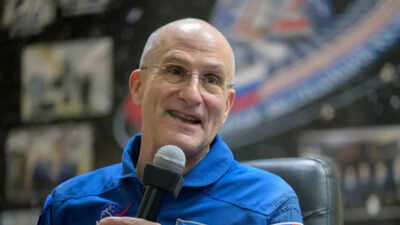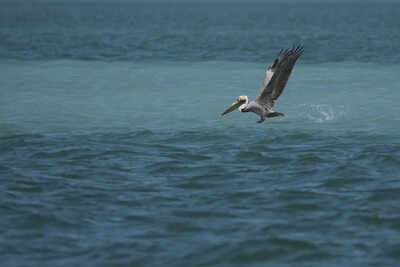Soyuz Capsule Returns from International Space Station: A Successful Conclusion to 220-Day Mission

A Soyuz capsule, designated as MS-26, successfully touched down in the expansive Kazakh steppe on Sunday, April 20, 2025, carrying with it two Russian cosmonauts and one American astronaut. The landing marked the conclusion of an extensive 220-day mission aboard the International Space Station (ISS), a significant achievement in international space collaboration.
The spacecraft executed a parachute-assisted landing near the remote town of Zhezkazgan, Kazakhstan, at precisely 6:20 a.m. local time (0120 GMT). This successful operation was confirmed by the Russian space agency Roscosmos, which reported that the descent was completed without any complications. On board were NASA astronaut Don Pettit, along with Roscosmos cosmonauts Alexey Ovchinin and Ivan Vagner, who have contributed to various scientific research initiatives during their time in orbit.
Throughout their nearly seven-month stay in space, the crew orbited the Earth approximately 3,520 times, conducting a wide range of experiments aimed at advancing our understanding of various scientific fields. Among the noteworthy events during the mission was the celebration of Don Pettit's 70th birthday, coinciding with their return to Earth.
Following their landing, NASA stated that standard medical checks for the crew would be conducted as a precautionary measure. After the checks, Pettit is set to transfer to a NASA aircraft that will take him to the Johnson Space Center in Houston, Texas, where he is expected to debrief with colleagues. Meanwhile, the two Russian cosmonauts, Ovchinin and Vagner, will make their way to a training facility in Star City, Russia, to continue their professional development.
In a significant handover prior to their return, Ovchinin participated in a change of command ceremony for the ISS on Friday, where he passed the leadership baton to Japanese astronaut Takuya Onishi. This ceremony exemplifies the collaborative spirit of the ISS program, which brings together astronauts from multiple countries to work towards common scientific goals.
The successful return of the Soyuz MS-26 crew not only highlights the ongoing achievements in human spaceflight but also underscores the importance of international cooperation in exploring space. As countries continue to enhance their capabilities in space exploration, the collaborative efforts aboard the ISS serve as a testament to what can be accomplished when nations work together.


























